by Parson Young
語言:
English /// 中文
Translation by Brian Hioe
Photo Credit: Enbion Micah Aan
On July 9th, in New York City, New Bloom’s Parson Young interviewed Freddy Lim of the New Power Party and lead singer of the famed black metal band Chthonic. This is part of an upcoming series of interviews New Bloom is conducting with members of third parties in Taiwan.
The New Power Party
Parson Young: In your view, why does Taiwan need a “Third Force” outside of the KMT and DPP?
Freddy Lim: I think this isn’t a matter of party divisions. I feel that when people form groups for a long period of time, there are various burdens, some which are external and some are internal. With regard to internal problems, the burden of relations between people is hard to avoid, whether you are talking about political parties, companies, or organizations. Each kind of group will have these problems.
Concerning external problems, we can also discuss rigidification. After an organization has existed for so long, the way outside world perceives you will become set in stone. As I discussed during yesterday’s talk, with the KMT and DPP, even if there is discussion of ideas, it’s too easy for people to say: “I usually vote for the KMT, I’ll always vote for the KMT, and I’ll never vote for the DPP!” The DPP voters may also think this way.
In the past two years, no matter whether from civil society movements or the Ko P phenomenon, we can see that if with a new form of power, a new brand, or new language, we can all break apart this rigidification. This is what I think Taiwan needs most now, or else it’s hard to move forward.
So concerning the “Third Force” (I use this phrase less), a new political party needs to have a new language, a new brand, to put forth more ideas to enliven public discussion. This is what Taiwan needs, otherwise we waste the space that civil society movements have carved out in these two, three years.
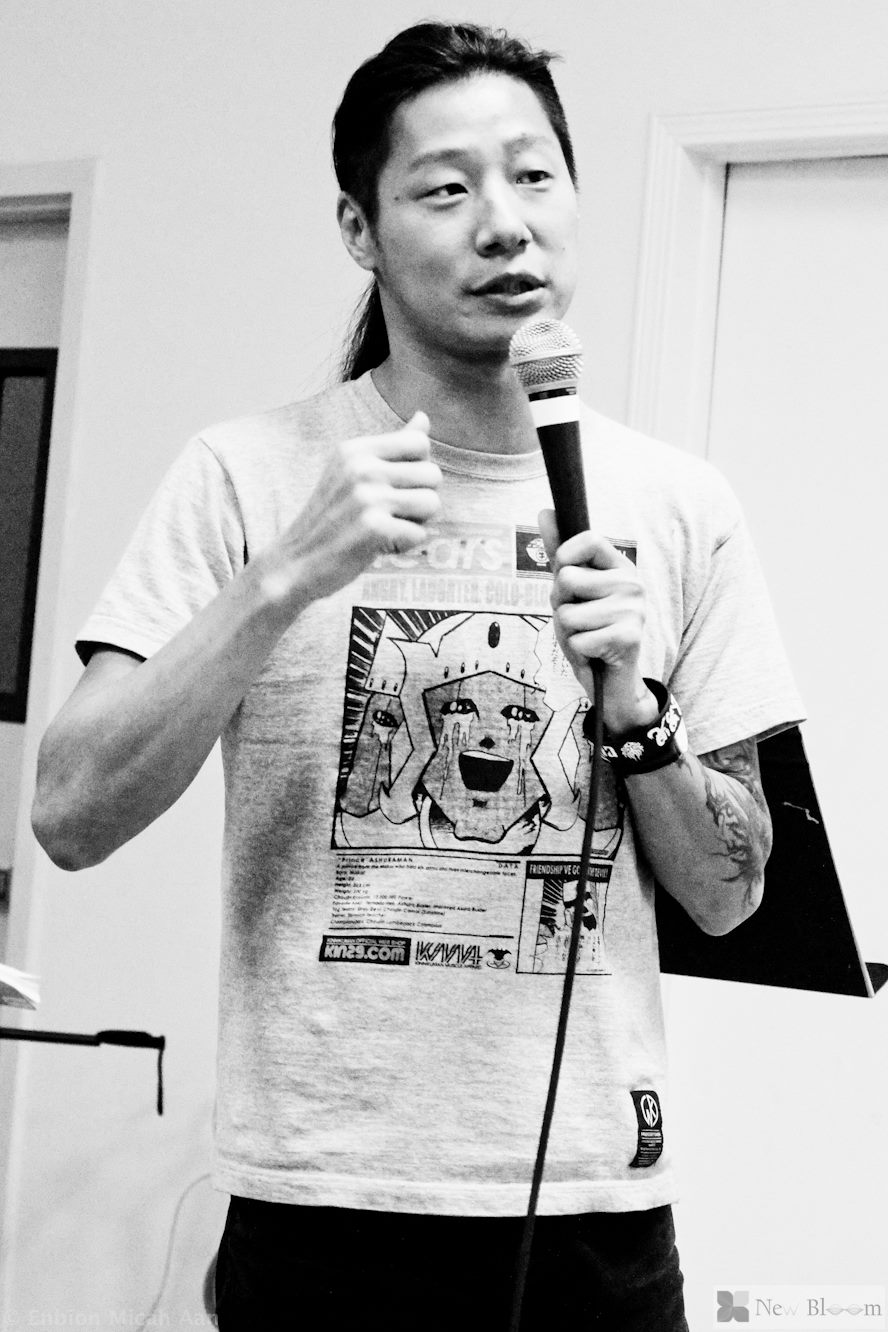 Photo credit: Enbion Micah Aan
Photo credit: Enbion Micah Aan
PY: What does the New Power Party need more of right now? Materials? Donations? Volunteers?
FL: For a new party like the New Power Party, getting donations is of course the most challenging task. We don’t easily get rich corporate sponsors, big corporations probably aren’t too fond of us either. If there are businesses willing to support us, we would of course be very grateful. However, we wouldn’t be under corporate control simply for their funding, the businesses should recognize this. Large or small donations from everyday people are still vital for us.
When it comes to donating supplies, we’ll have to arrange for someone to process the materials Donations, on the other hand, can be directly put into the fund for spreading our ideas. For example, if someone donates a computer, but the computer comes with a virus, we would need to take care of it. I also once sat down in a pretty solid looking chair someone gave us, only to have it break once I sat down. So for us, donations (large or small) are most important yet most scarce for now, then volunteers, followed by supplies. Although I ordered them in this way, in the end they are all equally significant to us, logistically speaking!
PY: What is the ultimate goal of the New Power Party?
FL: The final goal of the New Power Party is to become an important, large party in Taiwan. We obviously didn’t establish a political party just for this particular election next year. We hope of course to become a large, important, young and strong party, and are prepared to reach this goal through hard work and experiences in elections in 2016 and 2018.
Relations With Other Parties
PY: Recently, the New Power Party has a lot of interactions with the DPP, how would you define the relation between the two parties?
FL: It should be said that we are friendly allies working towards a same goal. We need to be honest about the fact that for the most part, the DPP is closer to the New Power Party or social activists in terms of ideals. Even though, without naming anyone, within the DPP there are some politicians we want to keep our distance from, but compared to the KMT, where ideals are concerned, there is much less relative distance from the DPP.
There are some people who are disappointed with the DPP, but there’s no way they would vote for the KMT either. We must clearly understand the current social structure, identify who would be our supporters, and how these supporters want us to relate to the DPP.
You can see in that our supporters, young and old, for the most part even if disappointed with the DPP, want us to work with them to defeat the KMT. They won’t want us to always criticize the DPP because of their disappointment towards it. Even if I in the past criticized the DPP on Facebook from time to time, for today’s elections we need to defeat the KMT only. I can’t just think about my own frustration with them, we need to work together. Elections are elections, and we need to win.
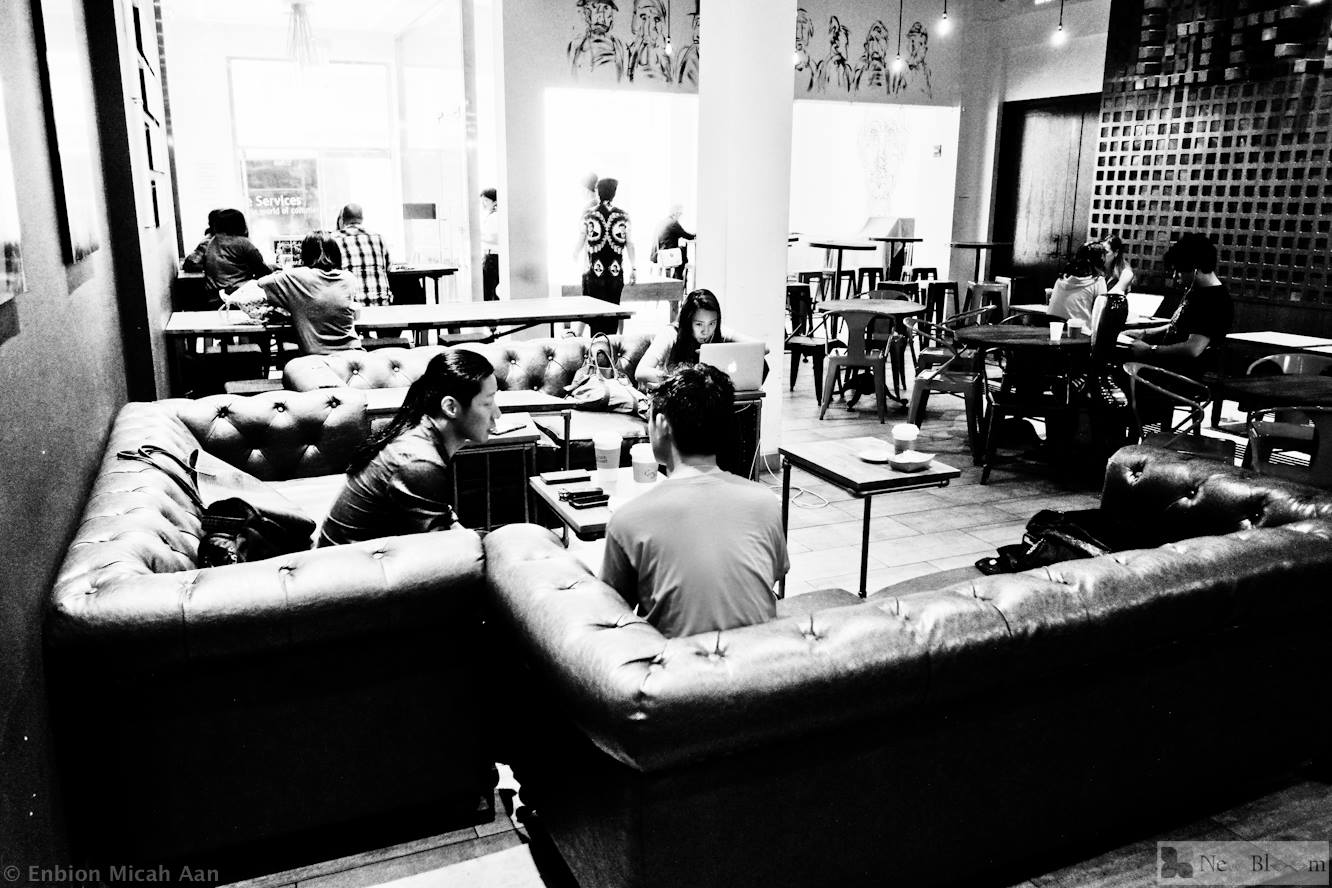 Photo credit: Enbion Micah Aan
Photo credit: Enbion Micah Aan
PY: How would you respond to the criticism that the NPP distracts from the DPP and may divide votes?
FL: If you look at the electoral districts we’re running, we’re probably trying the hardest to avoid overlap out of all the new parties. We work hard to win against the KMT (as a whole). Within the DPP, there are people who criticize us for starting a campaign without doing the necessary groundwork. But I also believe, apart from those who criticize us or those of us who criticize them, in reality we just need people with similar ideals to work together.
Once in awhile, it’s okay to make fun of each other, it happens all the time between friends. We absolutely do not want to take votes from each other. How to work together will test people’s intelligence, but I think within the new parties, the New Power Party is working hardest to create a sense of solidarity among the opposition.
PY: What are the differences between the New Power Party and other newly formed political parties?
FL: It’s harder at this stage to discuss what are the differences, because we’re all very new as political parties. I think we should leave it to the objective observers to spell out our differences. But overall, the New Power Party out of all of the political parties, including older parties, is easiest for people to join. On the Internet, a usual political party has regulations concerning who introduced you to the party and identifying who you are. But if you go on to our website, you’ll see that you don’t even have to upload an identity card. And if you don’t have a person to introduce you, you can say that Freddy introduced you, whether you actually know me or not. I can’t say what differences we have from each and every political party. But overall, we are the most open.
Because we are the most open of all the parties, the people who come to us are interesting and diverse. Several of the student movement’s most important opinion leaders work within the New Power Party, such as Chen Wei-Ting, Wu Cheng, Lao Pin-Yu, Dennis Yang, and Chen Ting-Hao. But when we say that we are open, we don’t just mean in terms of that entering the party or becoming a volunteer is easy, discussion between our political candidates and the general internal culture of the party is very open.
We can also talk about our activities. When we first established ourselves, there may have been some people that consider us to be a mere “Internet Party”, that is, a force which existed only on the Internet, due to our frequent interactions with people like Lin Zu-Yi (CEO of Watchout). But after we began our campaign, you will find that we are doing all the usual expected activities of all political campaign. From standing at streets, sweeping streets, sweeping markets, night markets, and other activities. Everyone saw that we are sweating every day after taking to the streets, so after that, nobody could say we were only an “Internet Party.” These two aspects are our characteristics, I haven’t seen any other political parties doing it this way. Of all of the political parties in Taiwan, we probably began campaigning the earliest, we started giving speeches on the streets first after founding ourselves in January, giving talks in the north, central, and south of Taiwan, and etc.
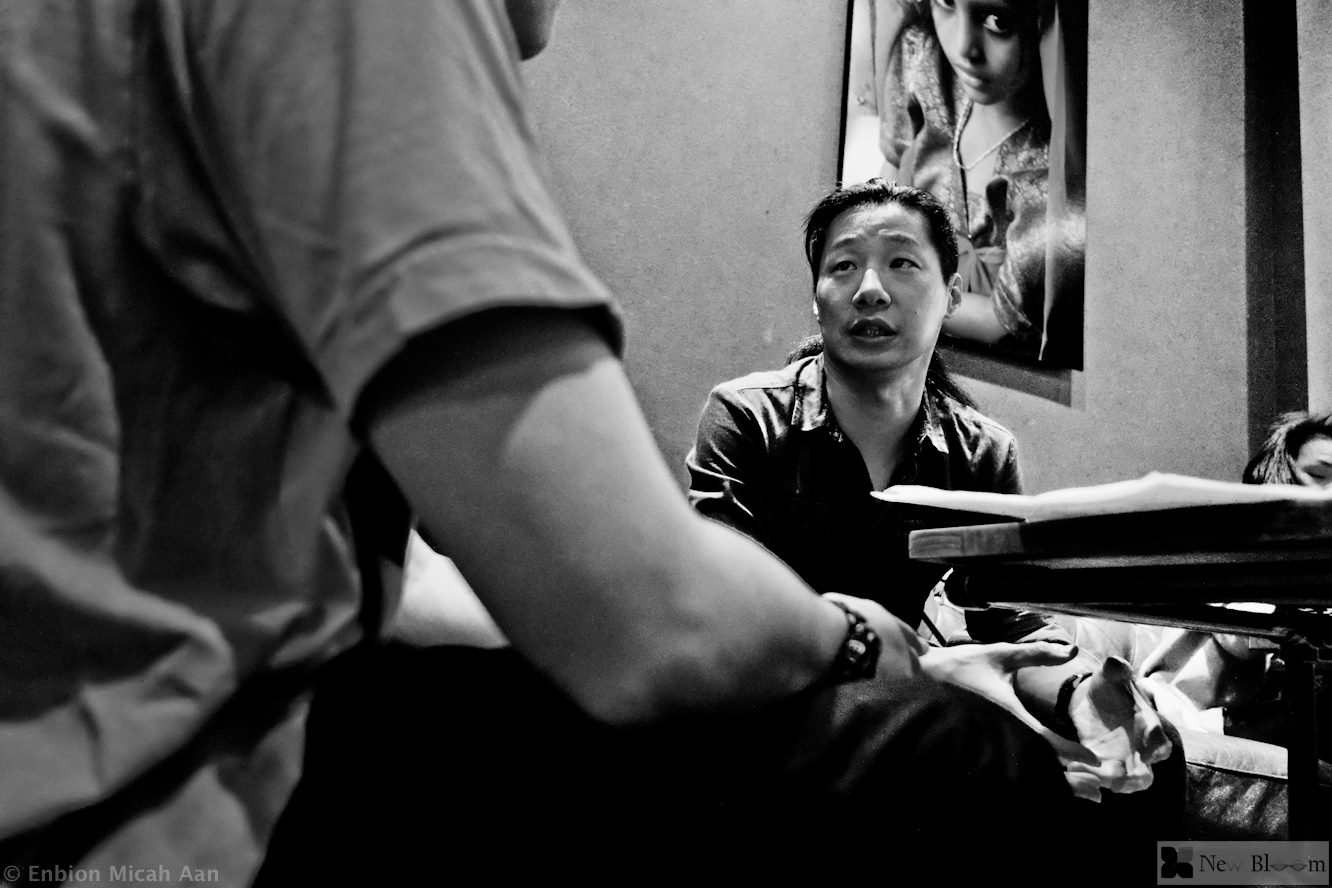 Photo credit: Enbion Micah Aan
Photo credit: Enbion Micah Aan
PY: In what aspects would you work with other parties?
FL: Firstly, I hope that that every can discuss cooperate regarding non-proportional constituencies. The New Power Party has an open platform to choose the list of candidates for non-proportional constituencies. I feel that this platform is a good process for generating candidates. After a few months when the list is finalized, everything would have been openly discussed. Whether on Taiwanese independence, environmental issues, gender equality issues, or etc., we can discuss them all together, and in the end, we can decide with open votes on the platform. This hasn’t happened in Taiwan before.
The New Power Party puts forth this open, transparent means of participation. We look forward to the Free Taiwan Party, Taiwanese Independence Movement Party, Social Democratic Party, and Green Party, to join us in an open and transparent manner to put together this list. I think this is the best way of uniting together.
In district elections, there’s not a lot of overlap between everybody, so I think there shouldn’t be any issues to resolve. But in regards to elections for proportional representation in districts, I fear that we fall back into the traditional way of partitioning districts behind closed doors. I feel that you (other parties) should have confidence in your own stances on many issues. For example, we believe environmental issues and Aborigines rights are very important, so we will bring these issues to the open discussion, and explain to voters on the significance of these issues and how we should prioritize them. It shouldn’t be an elite, behind closed doors negotiation, but rather an open conversation and deliberation process. I think this is a great way to make decisions, and hope that our allies can respond positively to our idea.
Personal Challenges
PY: How do you balance your musical career with your political one?
FL: Well, to speak frankly, there’s no way I can tour like before. In the past, touring was two months at the very least, sometimes I wouldn’t come back to Taiwan for half a year. So touring like that in the past is impossible. But though it may take longer to put out records or record songs, I won’t stop. I won’t deliberately try to balance these things in specific ways, it’ll find its course. As long as I have support and understanding from the other members of Chthonic, things will be okay.
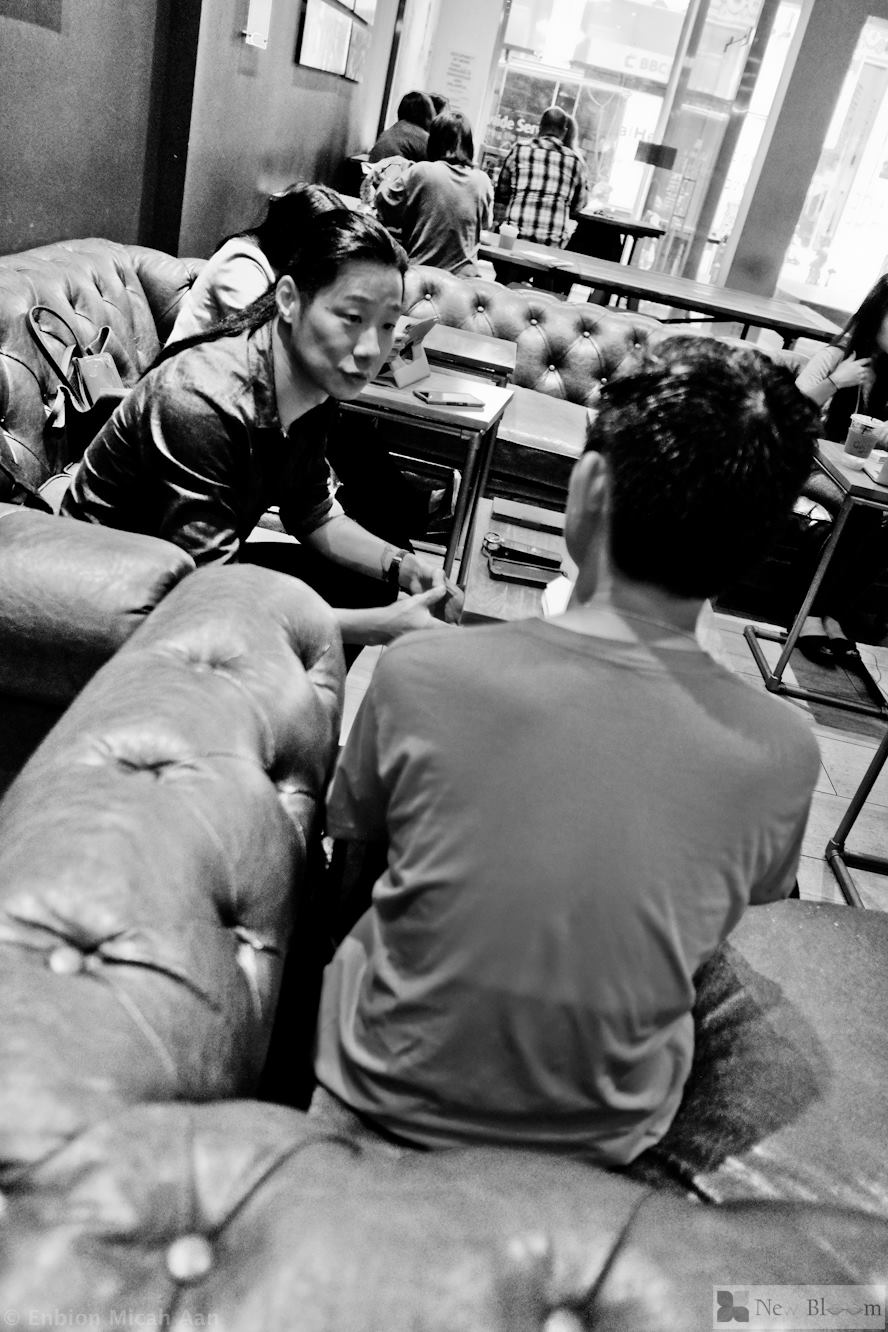 Photo credit: Enbion Micah Aan
Photo credit: Enbion Micah Aan
PY: If you get elected for legislator of Wanhua-Zhongzheng District, what are the challenges you need to overcome. What are your personal campaign goals? And what platform would you run under?
FL: Transitional justice, pushing for cultural policies, and Taiwan’s international relations, these three topics are probably the ones I’ll prioritize on. But at the same time, I will also work on issues that my district is concerned with. For the residents of Zhongzheng District, the most important issue is the opening of the Wanda line. Our competitor Lin Yu-Fang, says he will open the Wanda line every time he runs, but to date, work on the Wanda line isn’t up to 10% completion.
He already used this issue as his platform in his campaigns many times by now, but there’s no attempt on his part to form an alliance in the Legislative Yuan concerning the supervision of the budget, or take other concrete measures to resolve the issue. How can you allow this issue to persist for so long? We have been doing polls to understand the important issues of the residents of Wanhua-Zhongzheng district, and we discovered that the Wanda line is the most important issue for the residents of Wanhua, so I’ll work hard to resolve this issue.
Otherwise, for my platform, we believe that we can’t have it be like in the past, where people had to use their bodies to block police, to shout at politicians, or to occupy the Legislative Yuan in order to prevent bad policies from being put into law. So we have to continually update what happens in legislature. The best way is, like America, to have a network which broadcasts congress (C-SPAN), to have a continuous track of meetings, both on the Internet and on television.
Taiwan doesn’t have this right now, so the best way is to do this ourselves, we can continuously update what is happening within the national legislature, spread the news through neighborhood centers, and allow everything to be transparent, to let everyone know what is being discussed, and maybe what industries the legislations have to do with. This is what we need to do assiduously in the next four years, so we can overturn the pitiful status quo where only 10% of the district residents know that Lin Yu-Fang is their representative, let alone knowing what he is up to in the Legislative Yuan.
We can’t keep on allowing things to happen, and count on frustrated youths to remedy the situation with occupation and protests. This is no democracy at all. How can we have a system where people forget who they voted for the day after? We must overturn this situation where we only have democracy in appearance, but not in reality. We cannot assume that the people don’t want to participate, and submit to KMT’s logic of “leave the decision-making to the experts.” We have to be open and transparent, to encourage everyone’s participation. To not participate is everyone’s right, too, but we need to make sure those who want to participate get to do so. I feel that in these four years, our most important goal is the deepening of democracy and of everyone’s decision-making process. If ninety percent of people don’t know who is representing them in government, is this really political representation?
Alternative Possibilities
PY: Have you been paying attention to third parties in Europe? Do you think the “Third Force” in Taiwan has anywhere it should become like European third parties?
FL: Concerning a lot of European countries, democracy is something they are used to. It is different in Asia. Like Japan, ridigification of politics is very severe with the persistent deadlock of the LDP and the DJP. If other small parties want to influence things, they may have to wait very long. Taiwan has an added complication of national identification, free choice in politics is even more difficult for the Taiwanese people (in terms of political parties). Therefore, I can’t optimistically believe that the new parties in Taiwan can be swiftly influential like newly emergent parties in other parts of the world.
But I wouldn’t be too pessimistic either. Under Taiwan’s current circumstances, our rigidification isn’t so much due to the question of identity, but a change in expectation from the new generation. Unlike before, we now put a lot more faith in our new generation. Thus in the context of other countries, the new parties might be attractive because they present themselves as a new choice outside of the two major parties, whereas the new parties in Taiwan attract voter attention with our youthfulness. I think this characteristic can help us break the rigidification in our country.
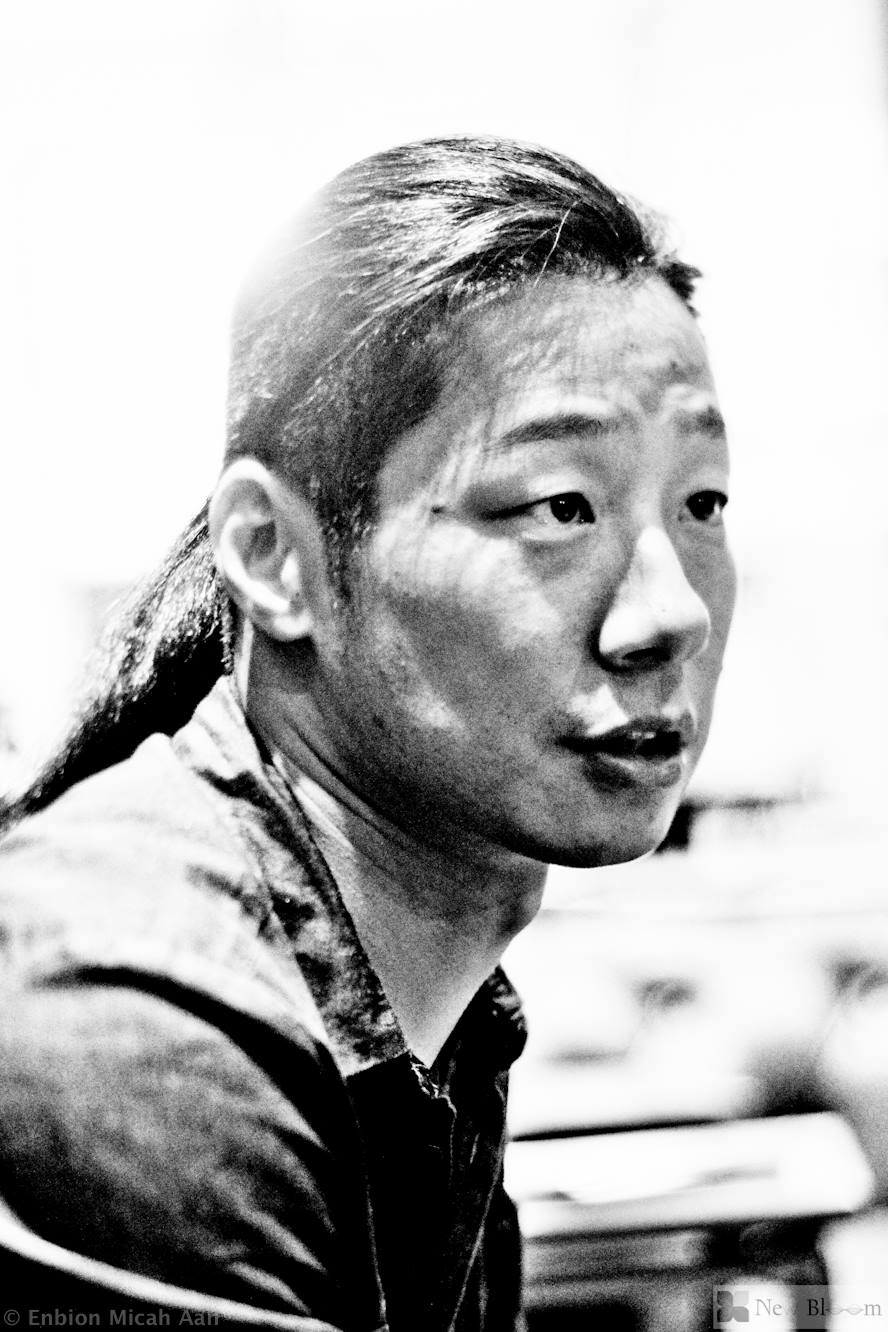 Photo credit: Enbion Micah Aan
Photo credit: Enbion Micah Aan
PY: If a Taiwanese party of labor is formed, what would your views be?
FL: I think it would be a very good thing if Taiwanese workers could join together. But I think a party of labor that doesn’t take a stance on the issue of national identity cannot survive in Taiwan, because average workers do believe that this question is very important.
There are people in my family who are working class, such as security guards and taxi drivers. They tend to have straightforward stances on national identification. They feel Taiwanese people can’t be bullied by others, that Taiwan has to interact with other countries as equals. They hope that they can see Taiwanese people succeed internationally. With the working class, apart from their own concern as laborers, they tend to be the most honest and willing supporters of the land. This is different with wealthy people who have a lot of considerations, and are afraid that they might lose business opportunities through expressing their political views. Workers don’t have these problems, they believe that loving their own land is the same as loving one’s mother and father. They don’t have to fear losing businesses for their pro-independence stance.
To create a labor party without a stance on the national identity issue now would be very difficult. But if there are enough workers willing to join together, and clearly articulate their identity and class solidarity, I think that could create a significant power. This has always been the view of the New Power Party, too.
If you look on our website, although we’re not called a labor party, we are still leaning to the Left. The New Power Party doesn’t have a lot of academics in it, in actuality, so in debates, we don’t use the terms “left” or “right”. Right now, New Power Party has a lot of participants who are new to politics, who don’t even now who Huang Kuo Chang is. All they care about is to do something good for Taiwan, they’re not even entirely privy of the student movement last year. This kind of people represents the average Taiwanese public, who might vaguely know about Sunflower, but wouldn’t recall who are Huang Kuo-Chang, Lin Fei-Fan, or Chen Wei-TIng. They don’t have the notion of political left or right, but when you talk about labor rights to them, that laborers must come together, that laborers are being exploited, they understand. When you explain to them that this is “Leftism,” they’ll find your explanation redundant.
For the average person, including these young people in the New Power Party, they only think about how to make society more equal, how to make Taiwan grow, and grow in a fashion as to not only benefiting the large corporations. Looking at this objectively, isn’t this viewpoint of the Left? These abstract matters of political distinctions aren’t meaningful to us. This is why we picked the name “New Power Party.” When we were discussing party name in the beginning, we did have some ideas that are more academic or traditional. But in the end, we decided not to use those names because we wanted to appeal to the young members of the party, so how could we go with a name like “Democracy Party,” “Freedom Party,” or “Equality Party”? For them, a majoritarian open discussion is called democracy. Doing the right thing is good enough of a principle. So we decided on “New Power Party” as a name, to let them feel that this era had produced a new force, to move Taiwan forward.
Conclusion
PY: Lastly, what would you have to say to Taiwanese and international readers?
FL: In the end I would like to say, everyone needs to think about how they can contribute and what role they can play, especially with as critical a moment as next year. For the first time, Seventy years after the war, one hundred years since the Taiwan Parliament Petition League Movement, we finally have a probability of having a Legislative Yuan that is free of KMT control, that belongs to the Taiwanese people.
We can’t relax our selves, lose diligence, or try fight with the KMT individually. This time we need to exert all our capacities. I feel that now is when critics should get out of the way. Now is the time to participate, donate, volunteer, do anything. We have enough critics, we need more activists now. If you can be a party volunteer, then be a party volunteer. If you can donate resources, then donate resources. If you can donate money, then donate money. Find your place in the camp against the KMT, and realize your true potential. Don’t wait until after next year only to regret. We need the power of mass solidarity.






